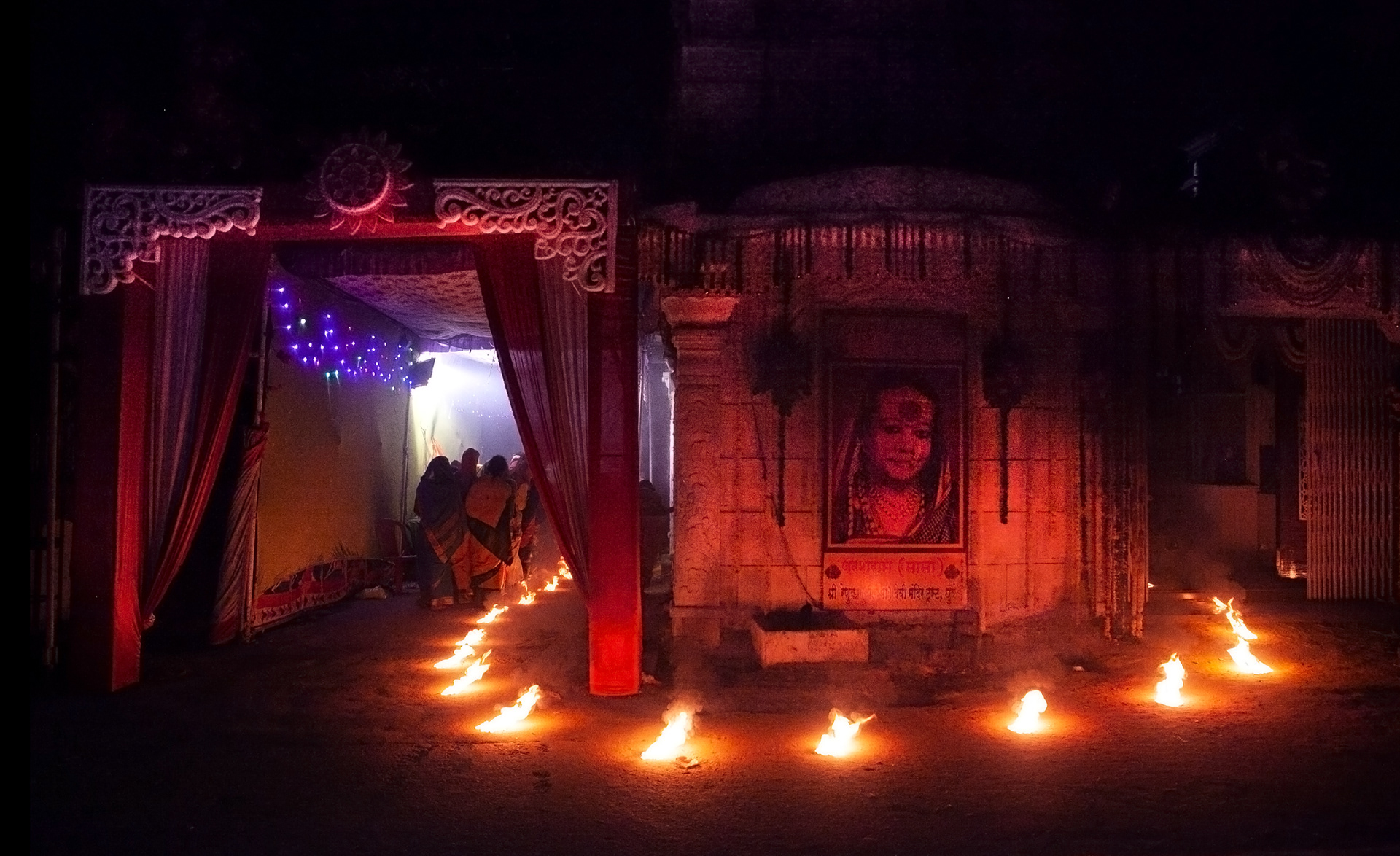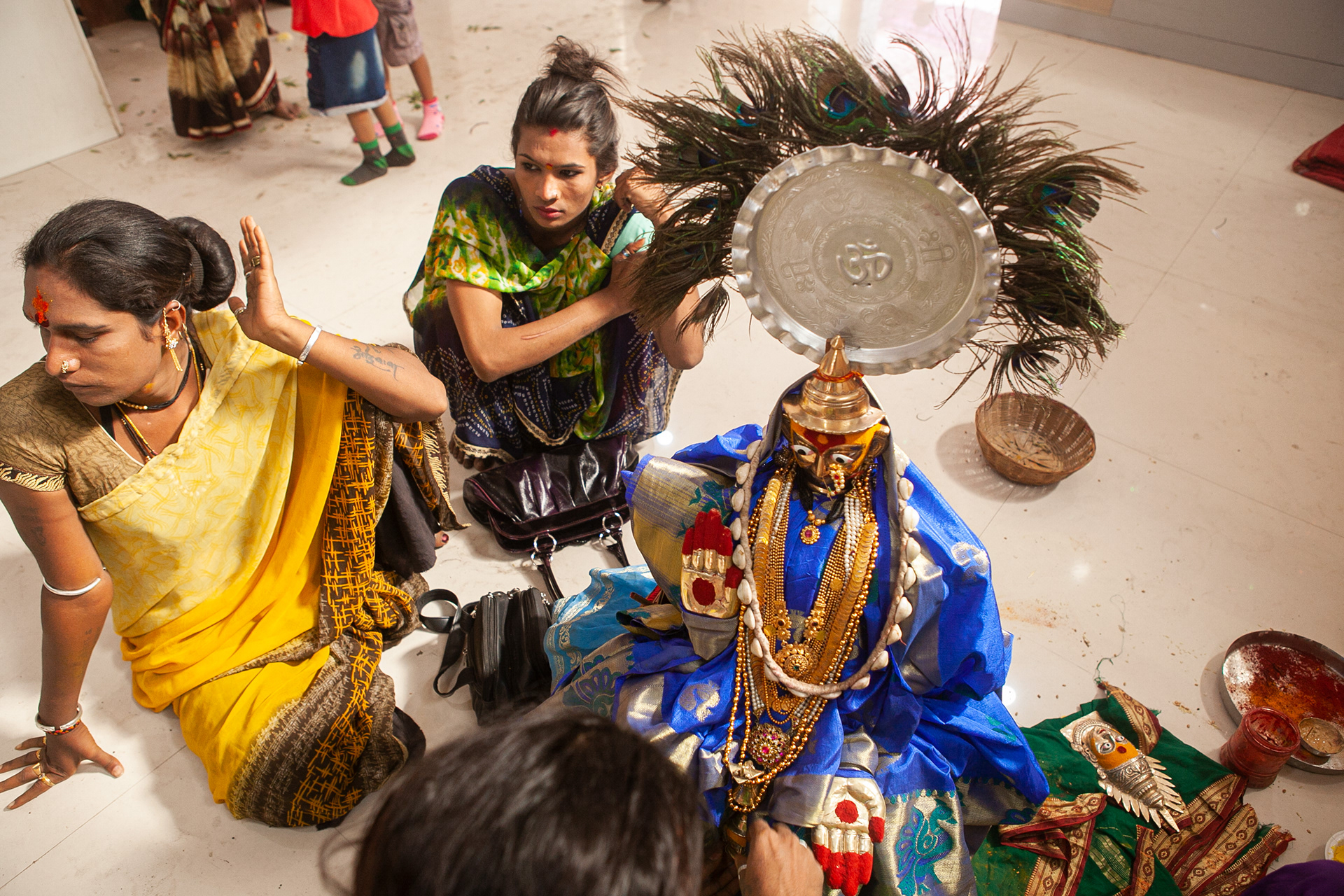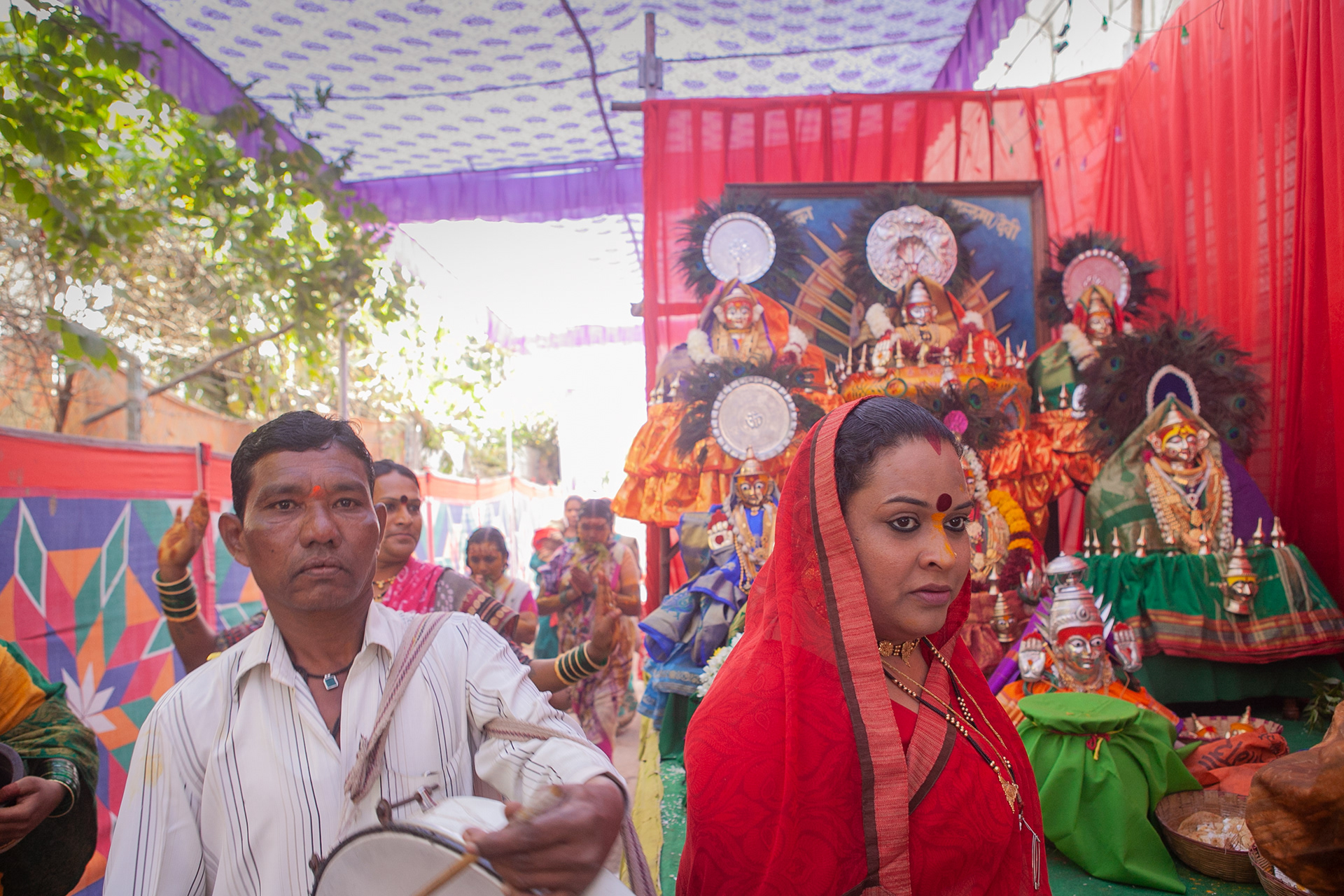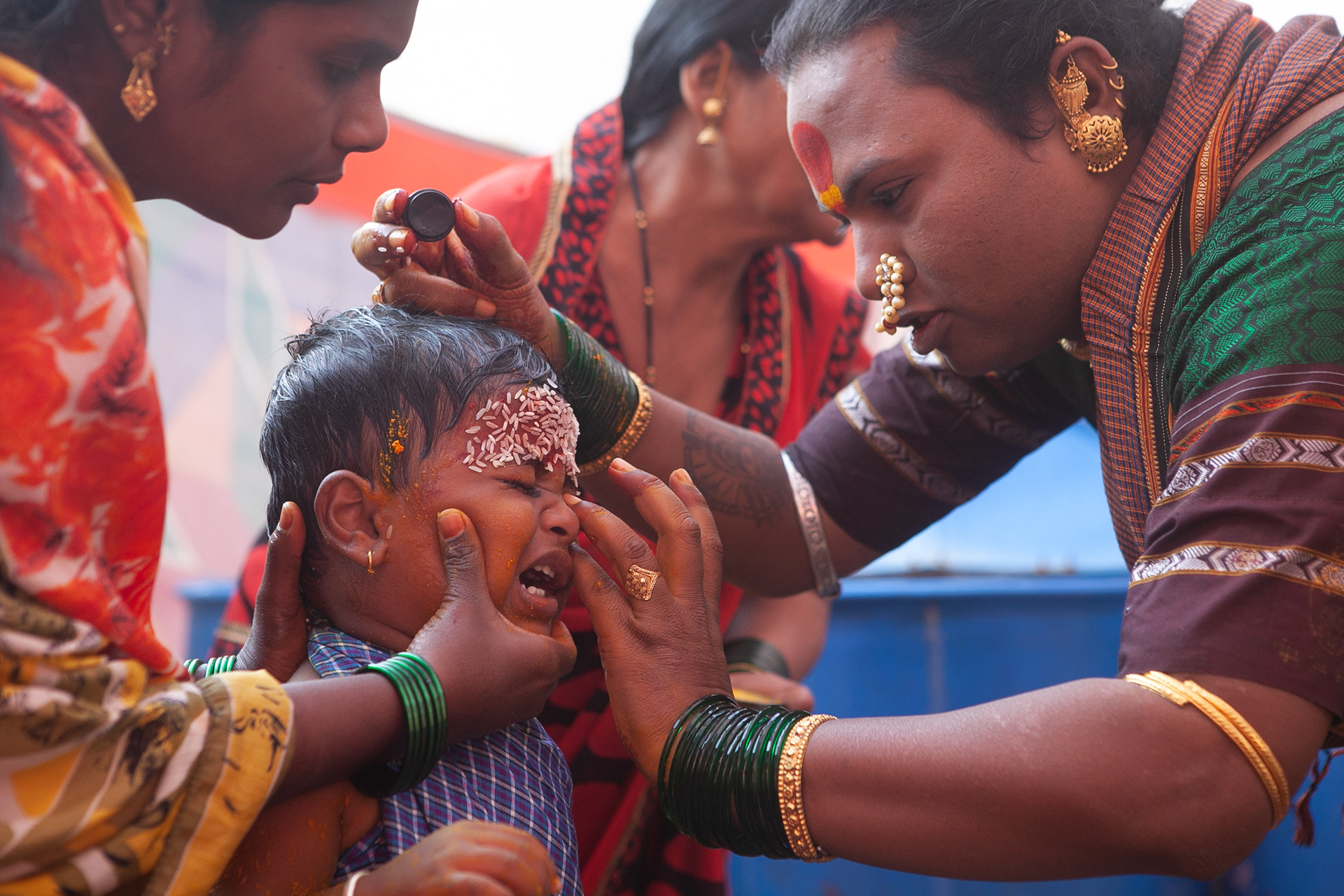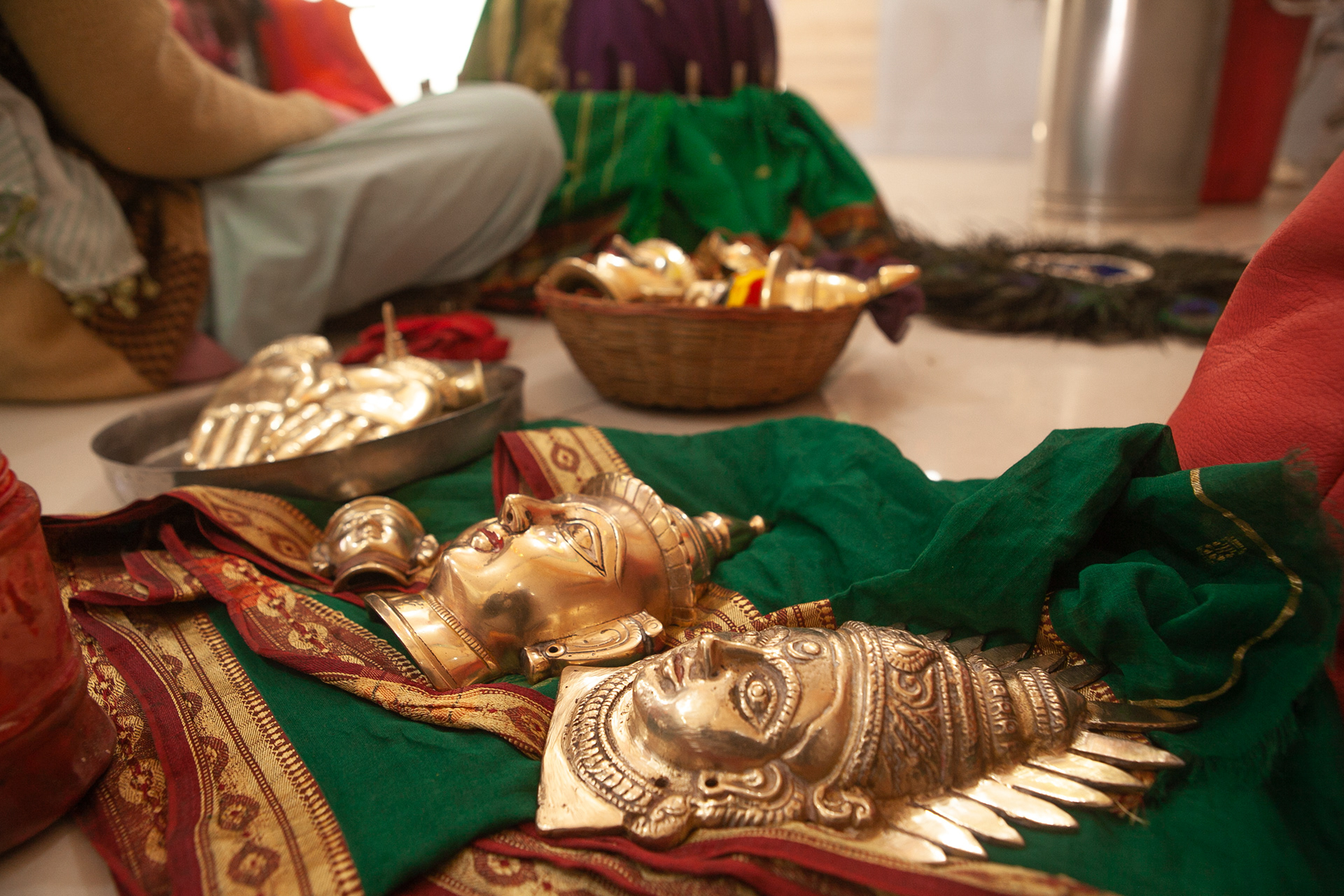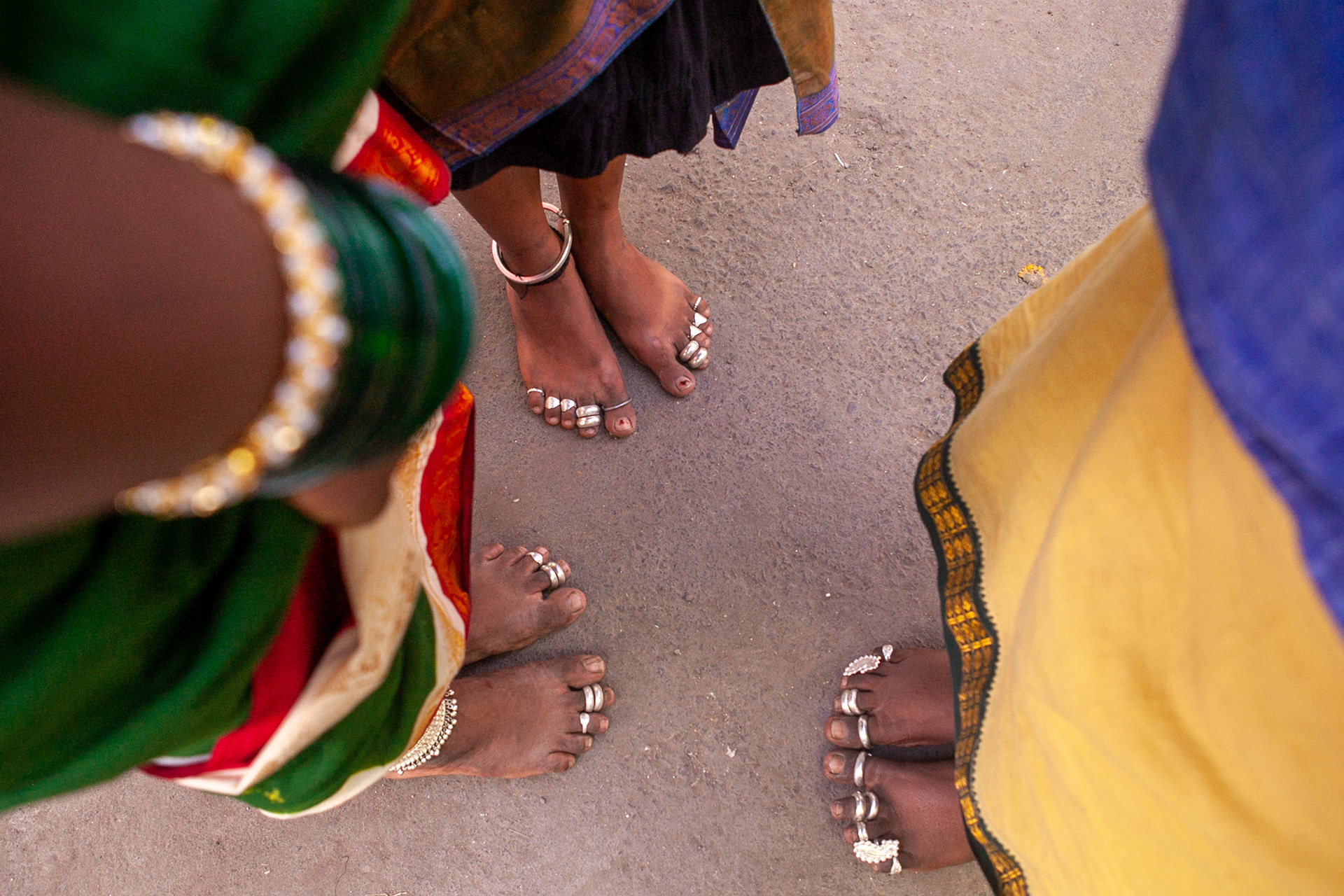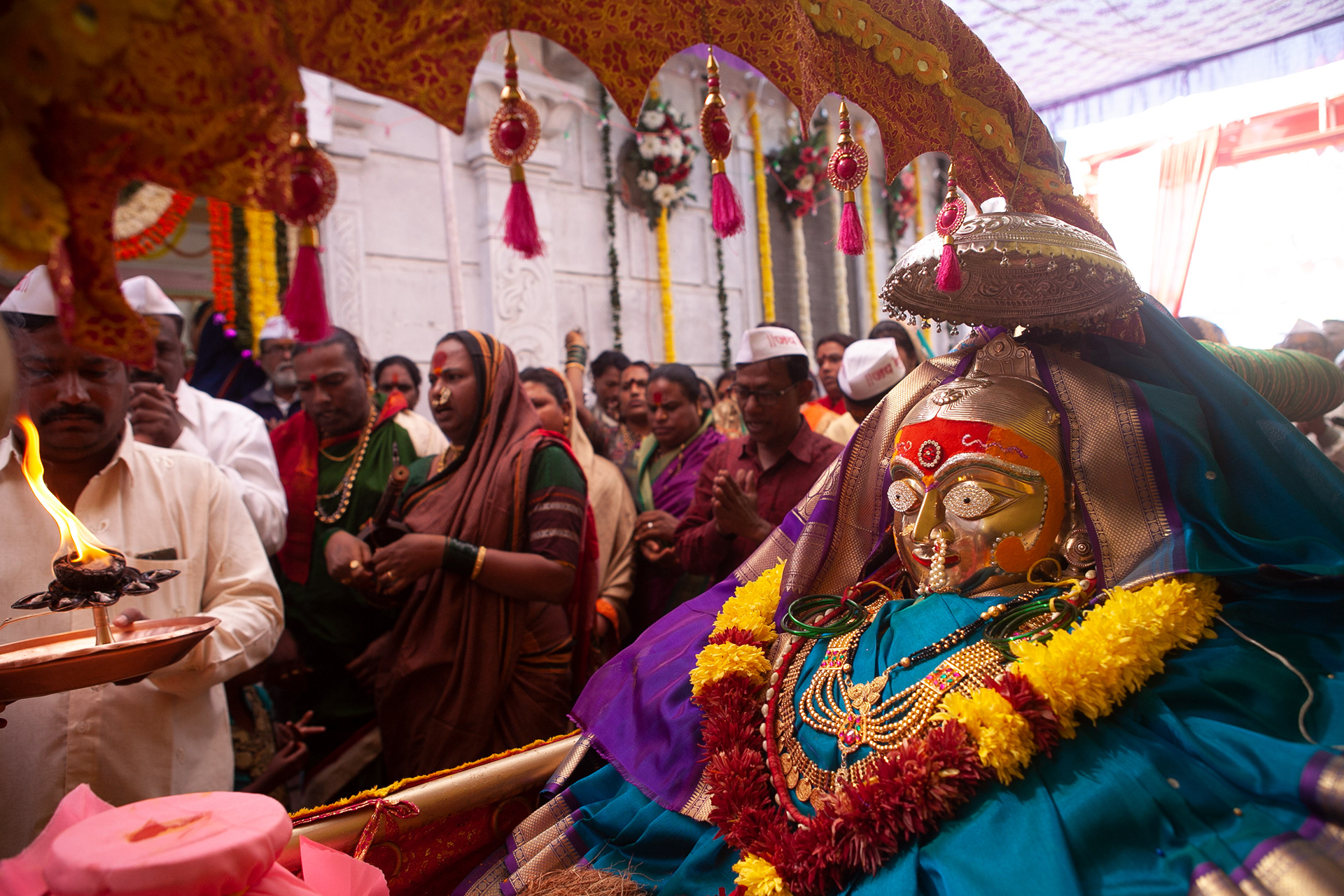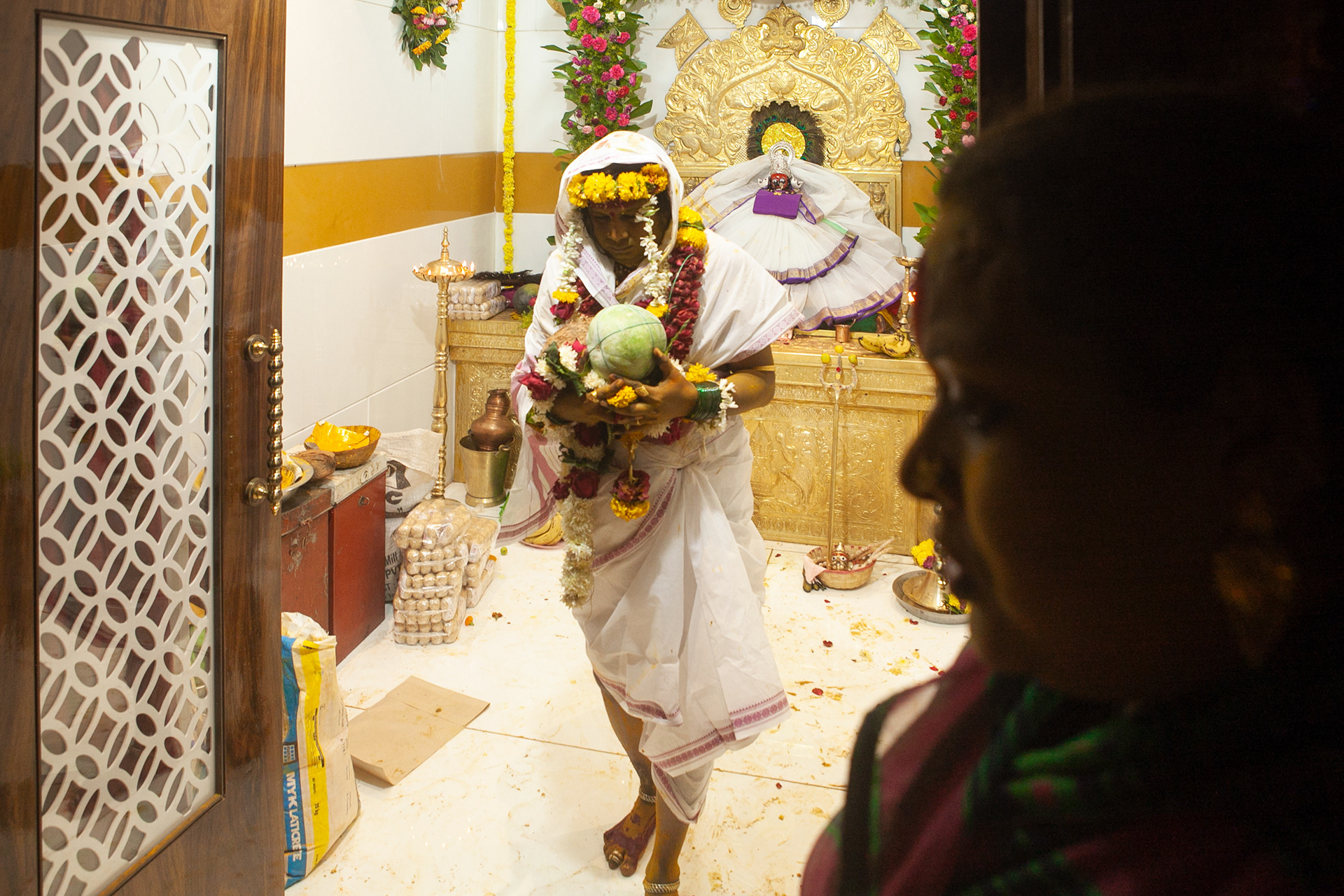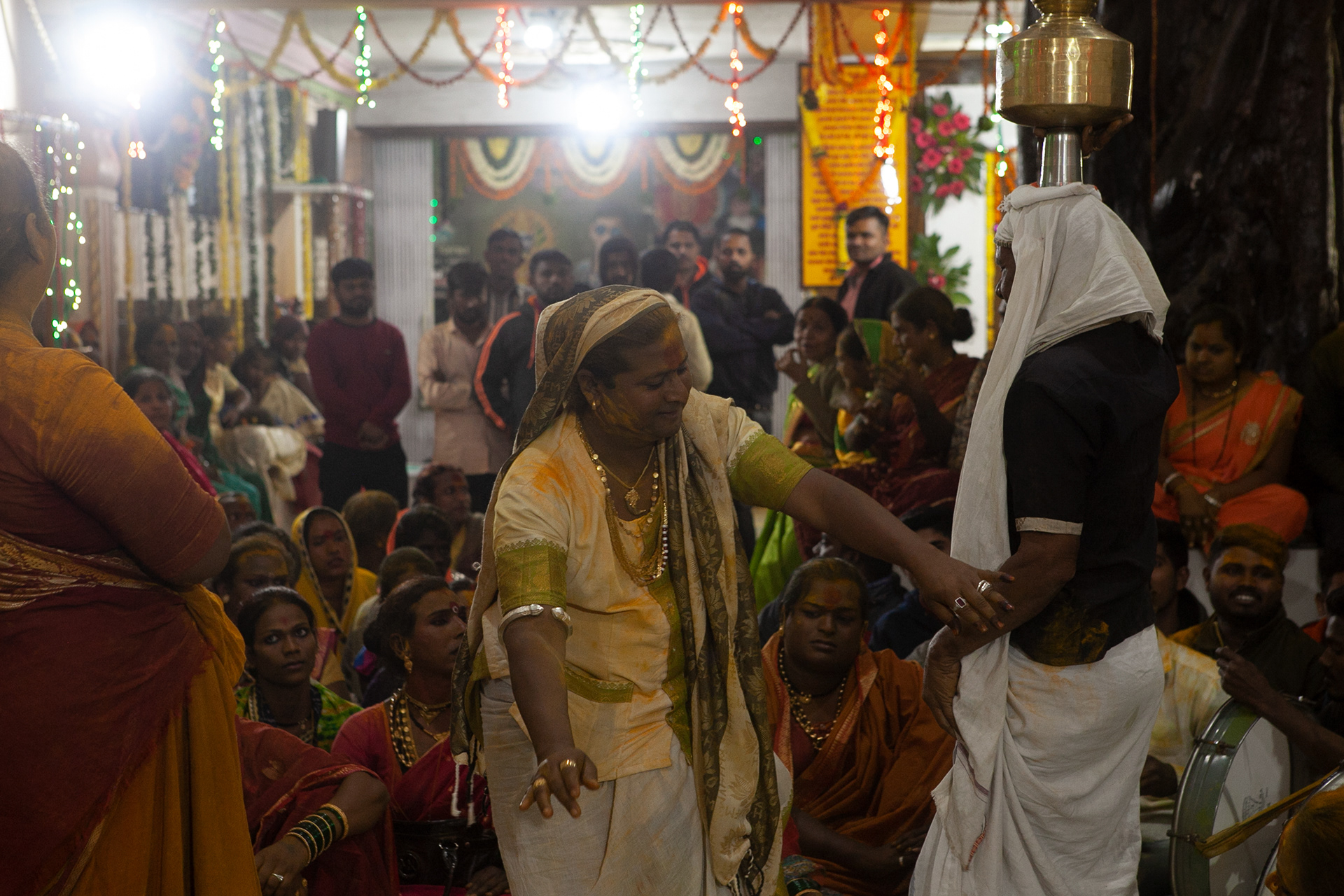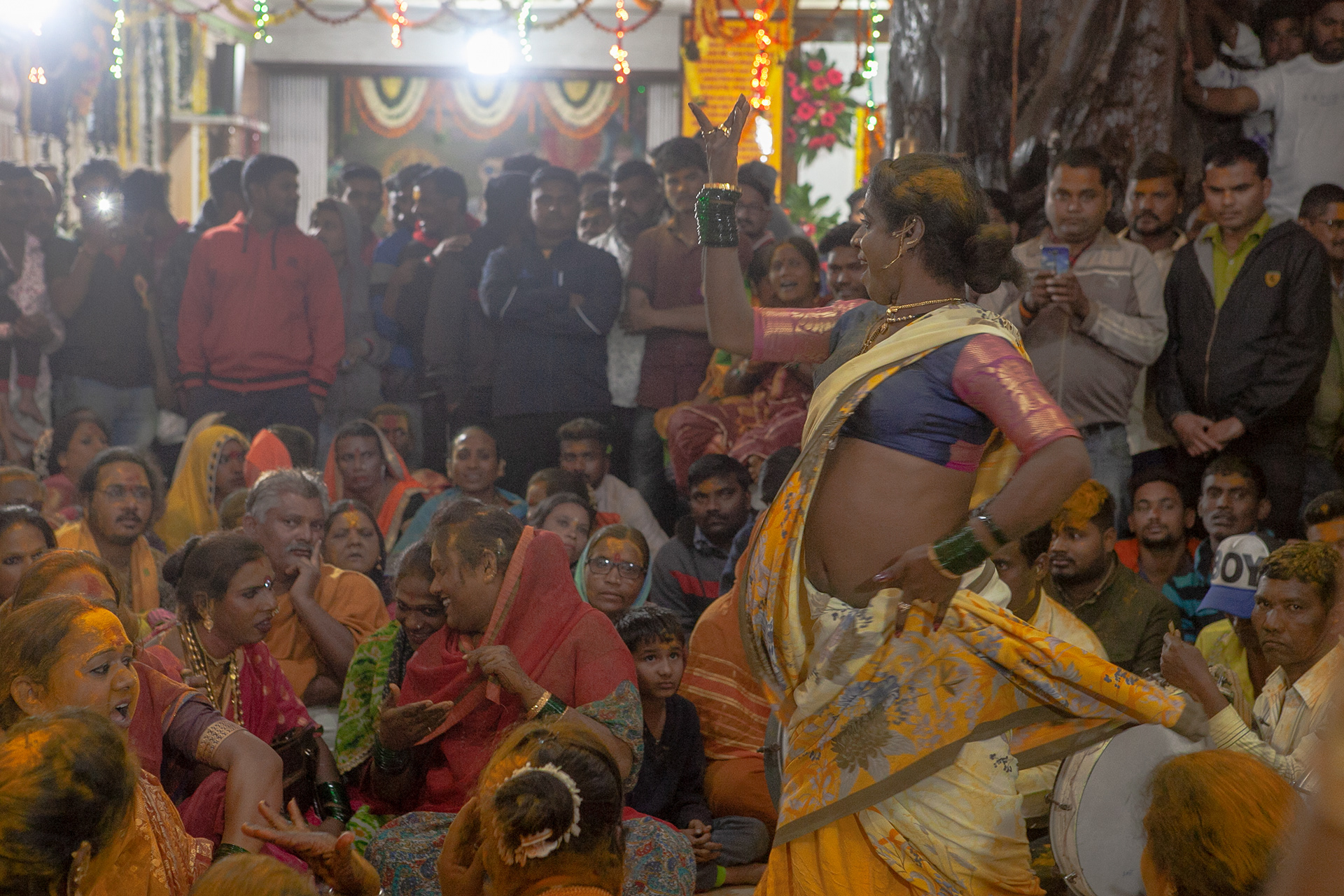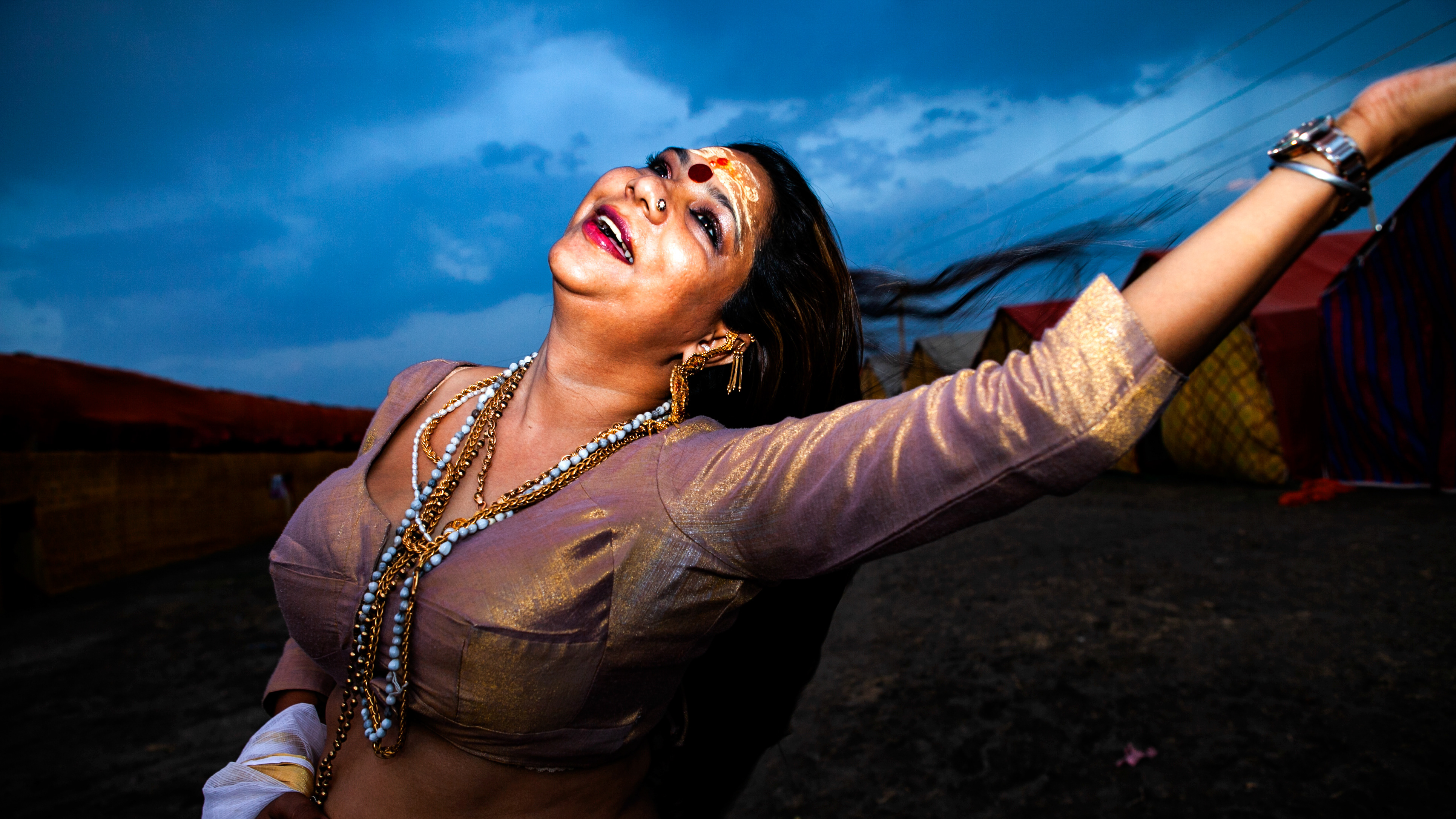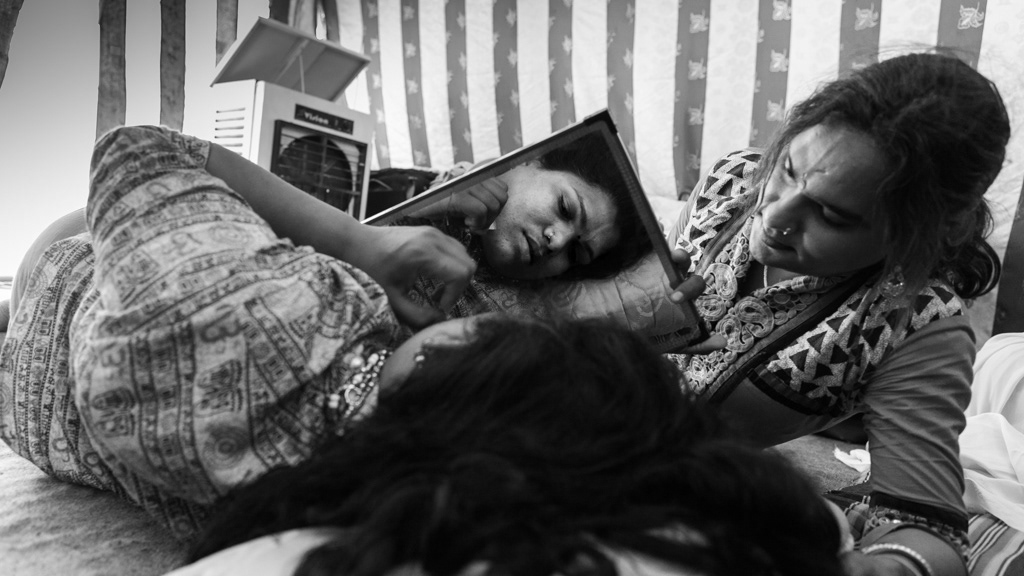The origins of the Jogati tradition can be traced back to ancient Hindu mythology and the concept of Aravanis or Aravani, considered transgender or third gender beings. They are associated with the mythological character of Lord Aravan, who sacrificed himself for the victory of the Pandavas in the Mahabharata epic. Jogatis, primarily found in Karnataka, Andhra Pradesh, and Telangana, are believed to be the descendants of Aravanis and are considered sacred in certain religious contexts
Jogatis hold a significant place in various religious practices, particularly during temple festivals dedicated to goddesses such as Yellamma, Renuka, and Mariamman. They act as intermediaries between devotees and the deities, performing rituals, singing devotional songs, and offering blessings. Their participation is seen as essential to ensuring the well-being and prosperity of the community. Jogatis deity of Yellamma decorate their forehead by smearing turmeric (Haldi) and vermilion (Kum-kum). Usually they do not go in for expensive ornaments. Crowns, earrings and necklaces are made out of cowries. Some of them do not wear any ornaments at all. The male devotees dress like men, but many Jogappas prefer to dress like Jogathis (symbolic of the sons of Renuka who became impotent), although it is extremely difficult for them to hide their male characteristics.
The Jogappas acting like Jogathis should not be mistaken for natural or otherwise eunuchs (Hijras) who are primarily entertainers. The Jogathis carry a metal vessel or a bamboo basket on their head which stays stationary without any support. Hence it looks like it's part of their body. The basket or the vessel is meant to carry a brass bust of Yellamma. It is very artistically decorated with a great variety of flowers. Some Jogathis use different colored cloth for the same purpose. It is a sight to see them dance carrying the icon on their heads. They dance rhythmically in a predetermined pattern. One or two Jogappas play drums.
The Jogatis' religious identity as the custodians of traditions and protectors of transgender communities in India is an integral part of the nation's cultural fabric. Despite the challenges they face, the evolving perceptions and legal protections provide hope for a more inclusive and equitable society. Acknowledging and appreciating the religious contributions of the Jogatis can foster greater acceptance, understanding, and respect for the transgender community, ultimately leading to a more compassionate and inclusive society for all.
